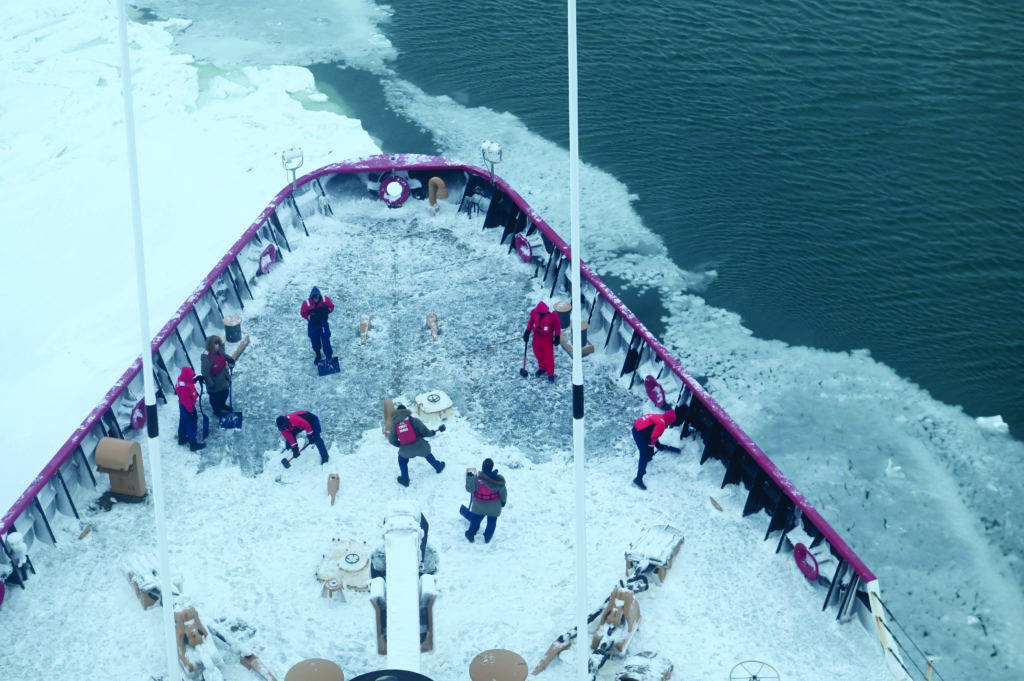
“There are strange sounds heard on northern seas
By the crew of the Polar Star
The screaming sound of ice scraping the hull
Like a freight train at first seems bizarre.”
The racket has been described by crewmembers aboard the Coast Guard cutter on its winter Arctic patrol as akin to screeches and bangs from a perpetual car crash, a blaring elephant and driving through concrete.
It was a mysterious conundrum that left crewmembers wondering, why is this Arctic ice so loud?
But ice analyst Evan Neuwirth, from the U.S. National Ice Center in Washington D.C., has offered a theory about why navigating through Arctic ice is so noisy.
According to Neuwirth, one of a handful of scientists and researchers on board, temperature may be the big factor contributing to the sound heard while icebreaking.
Arctic sea ice in winter is generally more dense, cold and brittle than in summer months. When winter Arctic ice strikes or rubs alongside the Polar Star’s exterior more of the impact energy is transferred to the hull, which results in a louder noise. Ice impacted by the crew on southern summer patrols is warmer and softer, making it more likely to compress and crush on impact with the vessel, resulting in the absorption of energy that would otherwise make a lot of noise.
Neuwirth offers as an example the sound of throwing a snowball at the ship’s hull versus a solid chunk of ice.
Arctic air and ice in winter is so cold that even after being broken into pieces the ice chunks remain rock hard, creating the notorious noise made in the process that has, for the most part been accepted by the crew as part of their unique, historic polar experience.
In other years the Polar Star has traveled annually to engage in Operation Deep Freeze at Antarctica. This year, instead, because of the pandemic the Polar Star headed north to the Chukchi Sea, farther north than any U.S. surface ship ever traveled in winter, in support of the Coast Guard’s Arctic Strategy.
The winter patrol is allowing the Polar Star crew to gain critical familiarity of the Arctic necessary to develop and train future polar sailors and advance U.S. interests and power in the region, Coast Guard officials said.














